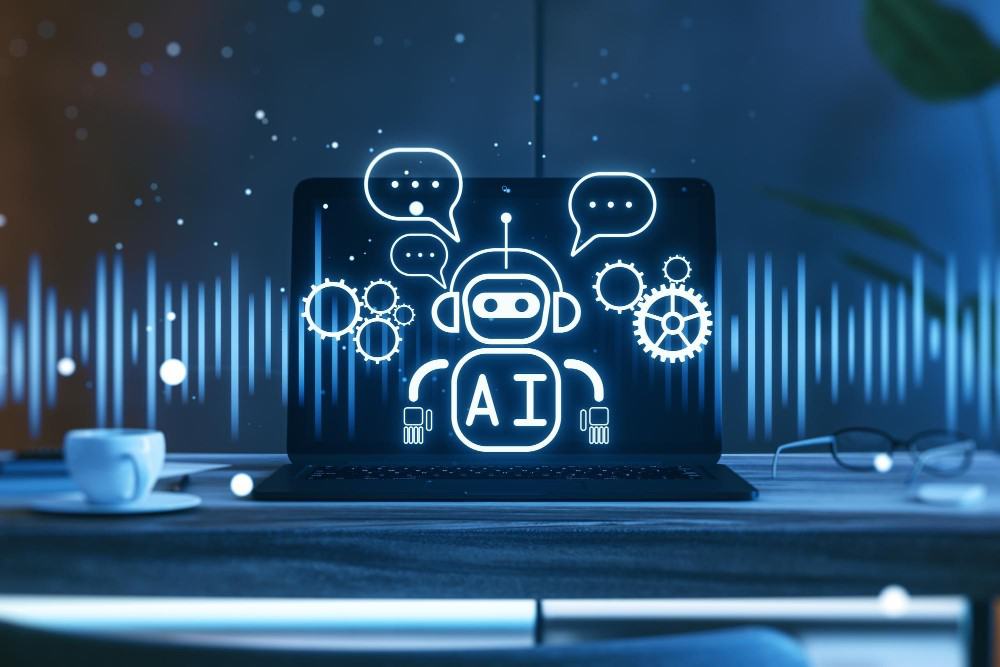In the rapidly evolving landscape of technology, Artificial Intelligence (AI) and Machine Learning (ML) have emerged as true game-changers, especially in the realm of chatbot development. With their cutting-edge capabilities, AI and ML-powered chatbots have completely transformed the landscape of customer service, revolutionizing the way businesses interact with their customers.
Intelligent chatbots set a new standard for customer satisfaction. They provide personalized experiences, understand and answer queries in real-time, and offer tailored recommendations. Invaluable tools for businesses, enhancing efficiency and improving customer experience. AI and ML-powered chatbots are indispensable assets in today’s market.
The Power of AI in Chatbots
AI brings to chatbots a high level of sophistication, enabling them to understand and process natural language, thereby improving the interaction they have with users. AI-powered chatbots can analyze complex requests, provide relevant responses, and learn from past interactions, thus enhancing their performance over time.
- AI enables chatbots to comprehend and process natural language, resulting in improved interactions with users.
- AI in chatbots permits the analysis of complex user requests, ensuring the delivery of relevant responses.
- AI-powered chatbots have the ability to learn from past interactions, which significantly enhances their performance over time.
The Impact of Machine Learning on Chatbot Development
Machine Learning, a subset of AI, plays a significant role in chatbot development. It allows chatbots to learn from past interactions and improve their responses. ML algorithms analyze patterns in data and make predictions, enabling chatbots to provide more personalized responses and enhance user satisfaction.
- Machine Learning, as a critical component of AI, imparts the ability to learn from past interactions, which in turn refines the responses of chatbots.
- ML algorithms play a pivotal role in pattern analysis and prediction, allowing chatbots to offer more personalized responses.
- The use of Machine Learning in chatbot development remarkably enhances user satisfaction by fostering a more tailored interaction experience.
- By learning and adapting from previous data, ML-equipped chatbots can handle complex queries more efficiently, providing accurate solutions to end-users.
The Future of AI and ML in Chatbot Development
The combination of AI and ML in chatbot development presents immense potential for the future. As both technologies continue to evolve, we can expect chatbots to become more intelligent and intuitive, transforming the way businesses interact with their customers.
- Future chatbots, empowered by advancements in AI and ML, will likely understand complex commands and process multilayered requests more efficiently, thereby offering a smoother user experience.
- The integration of AI and ML will pave the way for predictive analytics in chatbots, thus helping businesses anticipate customer needs and proactively offer solutions.
- The combination of AI and ML will also contribute to the refinement of Natural Language Processing (NLP), making future chatbots more adept at understanding and processing human language.
- As AI and ML continue to evolve, chatbots will likely be capable of more sophisticated emotion recognition, thereby allowing for more personalized and empathetic customer interactions.
Conclusion
The transformative power of AI and ML in chatbot development is undeniable. These technologies are revolutionizing the customer interaction landscape, offering unprecedented levels of personalization and efficiency. As AI and ML continue to advance, future chatbots will not only understand complex commands and process multilayered requests more efficiently, but also anticipate customer needs and respond in a more empathetic and human-like manner.
The integration of AI and ML in chatbots signifies a bright future for businesses and customers alike, promising more streamlined, intelligent, and personalized interaction experiences. With the continuous advancements in these fields, we are on the brink of witnessing a new era of customer interaction.
Author Bio:
Arjun Solanki is a Business Growth Strategist at a Leading Software Development Company. He has experience in developing and executing digital strategies for large global brands in a variety of business verticals. Apart from working on a long-lasting relationship with customers and boost business revenue, he is also interested in sharing my knowledge on various technologies and its influence on businesses through effective blog posts and article writing.
